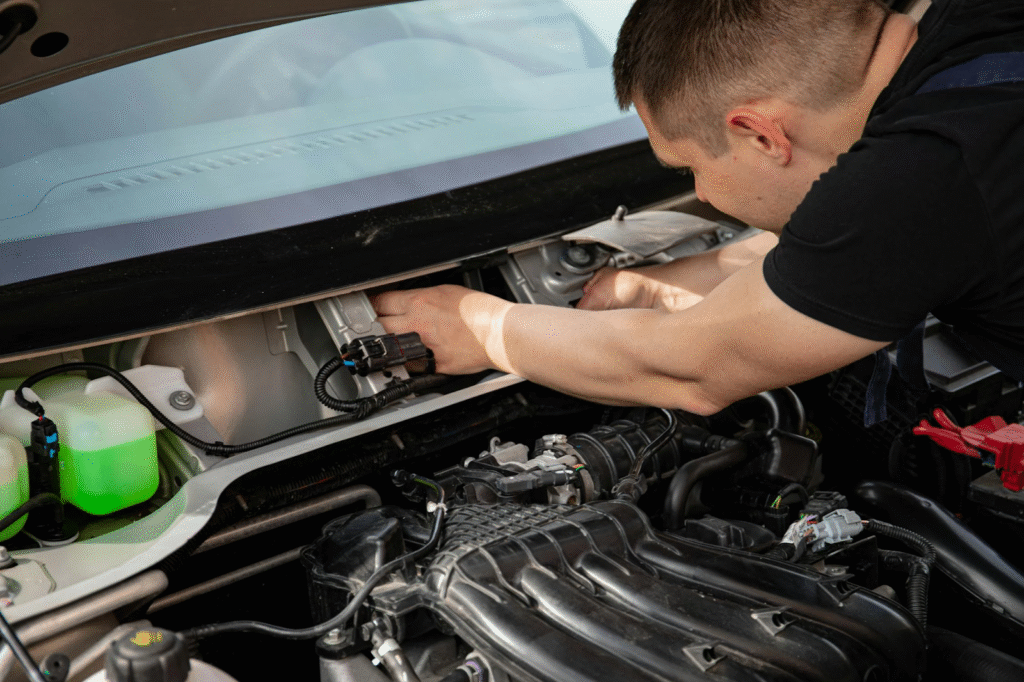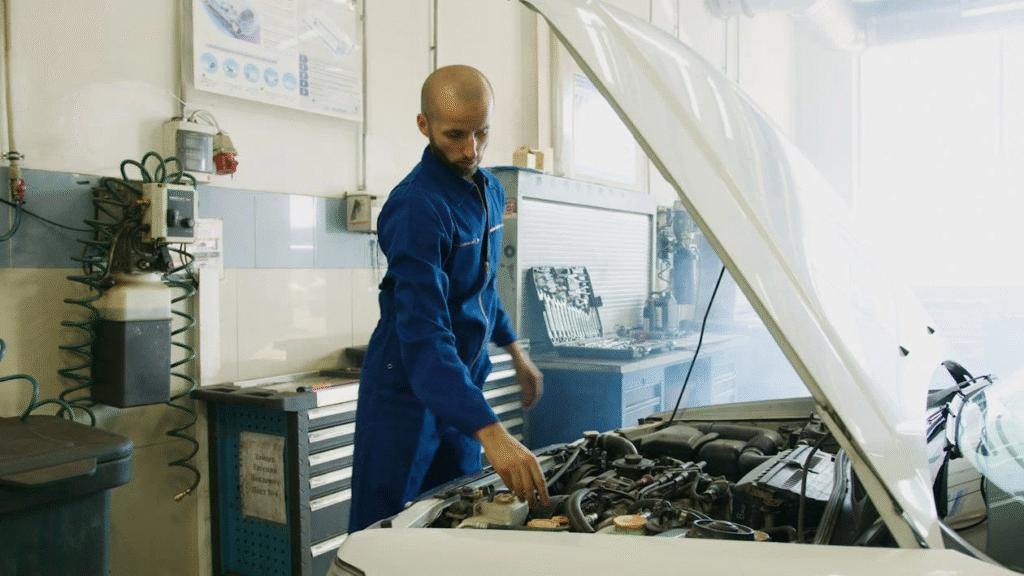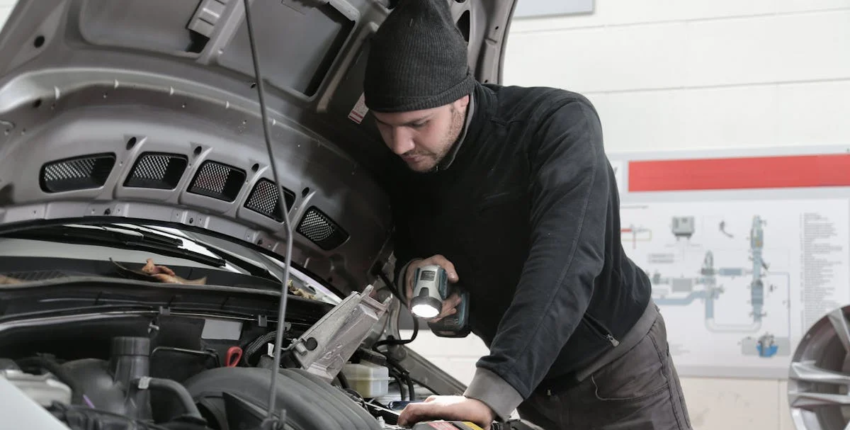- Telegraph Auto Repair
- Auto Repair, Transmission Repair
Understanding Transmission Repair: Common Problems and Fixes
If you’ve ever heard a strange noise while shifting gears or noticed your car hesitating before moving forward, you might be dealing with transmission issues. It’s one of those parts of your car you don’t really think about—until something goes wrong. And when it does, it can feel intimidating. But understanding how your transmission works, recognizing common problems, and knowing what fixes are available can give you peace of mind and help you make smarter repair decisions.
At Telegraph Auto Care, we know how stressful car shifting problems can be. We believe in empowering our customers with knowledge and dependable service. Let’s walk through what you need to know about transmission repair—from the basics to the most common fixes—so you can avoid major breakdowns.

What Your Transmission Actually Does
Your transmission is responsible for transferring power from the engine to the wheels. It adjusts the gear ratio between the engine and the drive wheels, allowing your vehicle to move at different speeds efficiently. In automatic vehicles, the car shifts gears on its own, while manual transmissions require the driver to change gears using a clutch.
There are two main types of transmissions:
- Manual (also called standard)
- Automatic (which includes traditional automatics, CVTs, and dual-clutch systems)
Regardless of type, your gearbox is critical. When it starts acting up, addressing the issue early can save you from costly breakdowns later on.
Signs of Transmission Trouble
Most car owners aren’t mechanics, but that doesn’t mean you can’t spot the warning signs of transmission problems. Here are some red flags to look out for:
1. Gear Slipping
Does your vehicle unexpectedly change gears or feel like it’s struggling to stay in the right one? That could be a sign of internal wear or low transmission fluid.
2. Delayed or Harsh Shifting
If you notice hesitation when your car shifts—or if the shift feels rough and jerky—it could indicate worn clutch packs or valve body issues in automatic transmissions.
3. Transmission Fluid Leaks
Transmission fluid is usually red and should never be leaking onto your driveway. A leak means your transmission is losing the lubricant it needs to function smoothly, which can quickly lead to damage.
4. Unusual Noises
A grinding or whining sound when shifting gears often means something inside your transmission is wearing out—especially if paired with shifting issues.
5. Warning Lights
Modern vehicles monitor transmission performance through sensors. If the check engine light or a specific transmission warning light appears, it’s time for a diagnostic check.
6. Burning Smell
Overheated transmission fluid can emit a burnt odor, indicating your transmission is working too hard, possibly due to low fluid, poor cooling, or excessive wear.
If you notice any of these symptoms, don’t wait. Getting your vehicle checked early can prevent much more serious (and expensive) damage.

Common Transmission Repairs and Fixes
The type of transmission repair your car needs depends on the problem. Here’s a breakdown of the most common fixes:
Transmission Fluid Change
Like your engine needs oil, your transmission needs fluid to operate smoothly. Over time, this fluid breaks down or gets contaminated. Regular transmission fluid changes are one of the simplest ways to keep your system healthy and prevent wear.
At Telegraph Auto Care, we often see vehicles come in with shifting issues that are resolved just by a fluid service. If your transmission fluid is low, dirty, or smells burnt, that’s a strong clue it needs attention.
Clutch Repair or Replacement
For manual transmission vehicles, the clutch plays a key role in engaging and disengaging power from the engine to the gearbox. A worn clutch can cause slipping, difficulty shifting, or strange noises. Clutch repair usually involves replacing the clutch disc, pressure plate, and sometimes the flywheel.
Even automatic transmissions have clutch components—so if you’re noticing hesitation or slipping, clutch wear might be part of the equation.
Solenoid Replacement
Transmission solenoids control the flow of fluid throughout the system in automatic cars. A faulty solenoid can cause erratic shifting or prevent the vehicle from changing gears entirely. Replacing a bad solenoid can often restore smooth shifting.
Gearbox Repair or Rebuild
If internal gears, bearings, or synchros are damaged, a transmission rebuild or gearbox repair may be necessary. This is a more involved fix, but it can bring your transmission back to like-new condition without replacing the whole unit.
A rebuild involves taking the transmission apart, replacing worn components, and reassembling it. It’s more affordable than a full replacement and can extend the life of your car significantly.
Transmission Replacement
In some cases, the damage is too severe, or the cost to rebuild exceeds the value of the vehicle. That’s when a full transmission replacement becomes the best option. While it’s the most expensive fix, it also gives you a fresh start with a remanufactured or new unit.
Automatic vs. Manual Transmission Repair
There’s often a misconception that automatic transmission repair is always more expensive than manual. While automatic systems are more complex (and often do cost more to repair), manual transmission repair isn’t always cheap either, especially if the clutch, flywheel, or synchros are damaged.
At Telegraph Auto Care, we service both types and provide honest assessments so you can make the right choice for your budget and vehicle.
Why Transmission Maintenance Matters
If there’s one thing we can’t stress enough, it’s this: Transmission maintenance is far less expensive than transmission repair.
Here’s how to keep your transmission healthy:
- Change your transmission fluid according to manufacturer guidelines
- Check for leaks regularly (especially under your parked vehicle)
- Don’t ignore warning lights—get your car scanned
- Avoid aggressive driving or overloading your vehicle, which puts strain on your transmission
- Listen for unusual noises and get them checked early
Your transmission is built to last, but it can’t do that without a little care. Skipping basic maintenance is one of the top reasons we see cars needing major gearbox repairs.

Let Telegraph Auto Care Keep You Moving
Transmission trouble doesn’t have to mean the end of the road for your vehicle. With prompt diagnosis, proper maintenance, and experienced technicians, most transmission issues can be fixed without draining your wallet.
At Telegraph Auto Care in Alexandria, VA, we specialize in helping our customers get back on the road with confidence. Whether you need a simple transmission fluid change, expert clutch repair, or a full gearbox rebuild, our skilled team is here to help. With our Nationwide Warranty and commitment to reliable, responsive service at the right price, we’re proud to be the auto repair shop local drivers trust.
Not sure what’s going on with your transmission? Don’t guess. Call us or stop by today for a professional inspection. Let’s catch small problems before they become big ones—because your car deserves world-class care, and so do you.


